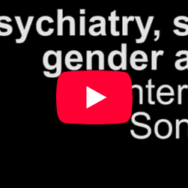Nervous exhaustion, melancholy, Weltschmerz, ennui, alienation, neurasthenia, Americanitis, stress, chronic fatigue syndrome, burnout ~ the labels & the socio-cultural context may change yet the symptoms remain the same. We are not referring to issues of faulty brain chemistry here such as clinical depression, mania or psychosis, yet these common & everyday emotions are increasingly being perceived as mental health issues. Should they be? Existential malaise manifests itself in a myriad of symptoms with crucially, no definitive cause ever identified.
A common historical (and current) explanation is that of the socio-cultural, likened to a virus attacking the body but this psychic virus‘inflames’ the psyche (Schaffner, 2014), no more so than during times of rapid social change (Kury, 2012). I do not intend to present a clinical analysis of the ‘condition’ but, whilst acknowledging a consistent trajectory in the occurrence of this individual ‘dis-ease’ with life, focus on the presumptions, treatments and explanations of the times to demonstrate to what extent perceptions of ‘illness’ are influenced by social prejudices and expectations. Read more…


